Physical Address
304 North Cardinal St.
Dorchester Center, MA 02124
Physical Address
304 North Cardinal St.
Dorchester Center, MA 02124
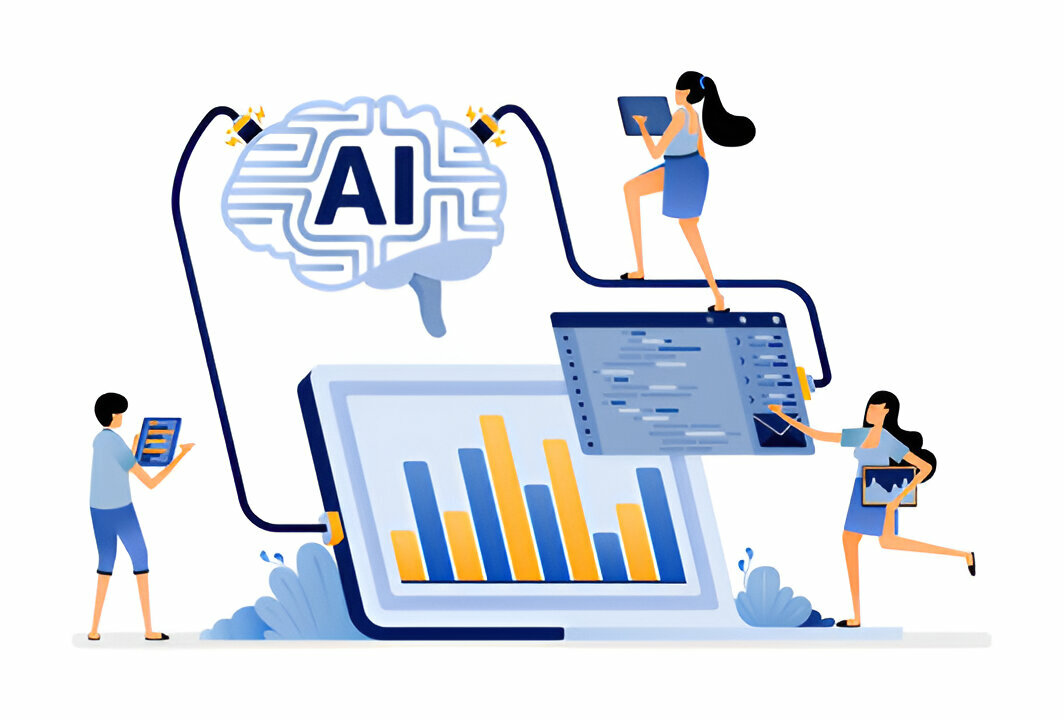
Artificial intelligence (AI) has undeniably transformed various facets of our lives, with AI websites being at the forefront of this revolution. AI websites are not simply a trend; they are the nexus of innovation, delivering dynamic user experiences, personalized content, and efficiency in data processing. Let’s delve into an exploration of the best AI websites, to unravel how these platforms are spearheading technological advancements and reshaping industries across the globe.
From shopping recommendations to customer service chatbots, AI websites provide interactive and tailored experiences that traditional sites can’t match. Whether free or subscription-based, these platforms harness the power of artificial intelligence to simplify complex processes, offer insightful data analyses, and create engaging interfaces that are not only appealing but also intuitively easy to navigate.
With an array of notable AI websites to choose from, users have the freedom to select platforms that cater to their specific needs. It could be a potential game-changer for businesses, educators, professionals, and enthusiasts who wish to leverage the benefits of AI while navigating the digital landscape. Gain an immersive understanding of this emerging AI web landscape as we dissect its features, discover its potential, and envision its future.
The realm of the internet has seen the integration of Artificial Intelligence (AI) in various forms, which continually shaped the way we interact with web technologies. The journey of AI’s role on the web started as a simple form of machine interaction and has now grown into a vital part of how content is created, delivered, and interpreted.
The initial phase of AI on the web was marked by the introduction of crude chatbots. These program-based tools were encoded with a set of predefined responses, which offered a glimpse into the possibilities of AI in web implementations. However, the rigidness of their responses and limited understanding of user queries often resulted in a lackluster user experience. Despite their limitations, these early renditions of AI laid the groundwork for more advanced AI technologies, as they highlighted the need for AI to better understand and respond to user needs on an artificial intelligence site.
Fueled by advancements in machine learning and neural networks, AI has evolved significantly since those early days. Today’s AI technologies can intelligently analyze user behavior, automate routine tasks, and even produce content on an artificial intelligence web site. From personalized content recommendations to complex AI web applications, recent advancements have considerably improved user experiences on the web.
For instance, AI-based web analytics tools are now capable of providing businesses with deep insights into user behavior. By tracking various user metrics, these tools can help businesses to optimize their websites and enhance the user experience. Similarly, AI-powered content creation tools can automatically generate high-quality content that matches the context and intent of the user query. Not only does this translate to better user engagement, but it also allows businesses to scale their content production at an unprecedented rate.
Furthermore, with AI’s ability to perform complex tasks that were once considered the exclusive domain of human intelligence, a whole new world of interactive and immersive web experiences is on the horizon. One such example is the development of advanced AI chatbots that can not only understand the nuances of human language but also respond with accurate and relevant responses. Coupled with voice recognition capabilities, these AI chatbots are revolutionizing the way businesses interact with their consumers over the web.
The evolution of AI’s role in web environments is a testament to the transformative power of technology. As AI continues to evolve, it is set to play an even more significant role in shaping the future of web technologies, offering exciting possibilities for both businesses and consumers alike.
Artificial intelligence (AI) is transforming various sectors, from healthcare and finances to retail and beyond. AI websites, recognized as some of the best AI interfaces, are leading this innovation. They have significantly streamlined operations, introduced unprecedented efficiency levels, and designed unique personalized experiences. The integration of AI into free websites and high-end platforms has resulted in serious advancements, contributing massively to the world of digitization.
| Industries | Impact of AI Websites |
|---|---|
| Healthcare | AI websites aid in predicting patient health outcomes, managing patient data, and facilitating remote patient monitoring. This resulted in more effective and personalized treatments. |
| Finance | In the finance sector, AI-powered websites help with risk management, fraud detection, and investment strategy planning, leading to improved accuracy in decision-making and better management of clients’ portfolios. |
| Retail | Retailers significantly benefit from AI websites by utilizing predictive algorithms for inventory management, personalized shopping experiences for customers, and chatbots for customer service. |
Furthermore, exceptional case studies have revealed how the incorporation of AI can lead to significant advancements, cost savings, and innovation. These instances are clear demonstrations of AI’s potential in transforming industries and hint towards an even more AI-centric future.
The significance of AI websites goes beyond their implementation in regular operations. These platforms are considered crucial in data analysis and decision-making processes across various industries. They provide sophisticated tools that help companies collect, organize, and analyze large chunks of data, thus offering actionable insights and trends. These insights encourage businesses to make informed strategic decisions, making AI websites an integral part of the business ecosystem.
In the rapidly evolving digital landscape, an outstanding artificial intelligence website stands on the strength of its fundamentals. These essential elements coalesce to form user-friendly, informative, and engaging platforms. Such websites do not merely host AI, but also optimize its potential by marrying it with responsive design and user-focused functionality.
One critical factor in their success is intuitive navigation. Visitors should be able to explore the site smoothly, finding the information or tool they need swiftly and without undue effort. An orderly layout, clean design, and a judiciously curated menu are all vital to this end.
Interactive AI components play a crucial role in user engagement. Features such as personalized recommendations, optimized search functions, and smart assistance greatly enhance user interaction. They convert a passive browsing experience into an active dialog with the user, thereby increasing visitor retention and satisfaction.
| Important Features | Description |
|---|---|
| Intuitive Navigation | A clear layout, easy-to-use menu, and quick access to essential tools and information. |
| Interactive AI components | AI-powered aspects that engage users and improve their experience, such as personalized recommendations, smart search, and virtual assistance. |
Apart from these, real-time AI functionalities are a key ingredient in achieving user-centered design in free AI websites. These features can range from instant content customization to seamless customer service via AI-powered chatbots. Real-time AI not only heightens user experience but also helps form a lasting connection between the platform and its users by catering to their inquiries and needs promptly.
Finally, the value of design aesthetics and content relevance cannot be overstated. Both contribute significantly in distinguishing the best AI websites from the rest. A visually pleasing design, complemented by relevant and concise content, can engage a user far more effectively than the most advanced AI functionalities alone could. It is the synergy of design, content, and seamlessly integrated AI features that truly carry forward the transformative potential of AI in the digital world.
In conclusion, an excellent AI website achieves a harmonious interplay of well-designed navigation, interactive AI components, real-time functionalities, appealing aesthetics, precise content, and flawless implementation of AI. Understanding these key elements can greatly aid businesses and individuals in selecting or creating AI websites that truly serve their needs.
In the realm of artificial intelligence, there are numerous platforms offering exceptional AI tools and services for free. These platforms not only contribute significantly to the accessibility of AI for individuals and companies, but also serve as an effective entry point for those intending to leverage AI without making a substantial financial commitment.
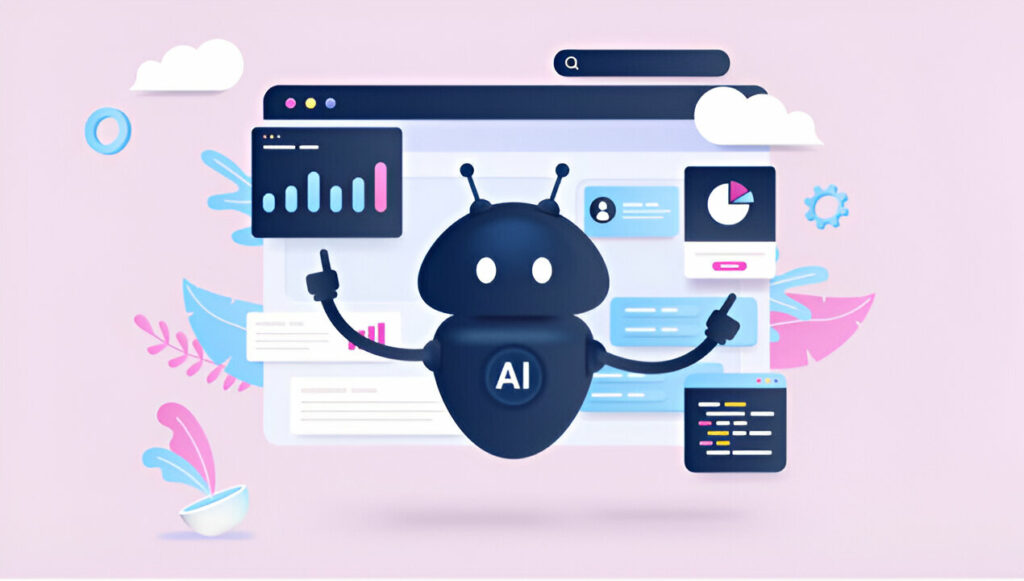
Free AI websites provide a myriad of useful tools and resources which fall into diverse categories. These range from educational softwares that offer courses on the basics of AI, machine learning, and data science, to programming platforms that equip developers with the tools to construct and train AI models. Additionally, there are services that render pre-trained AI models which can be freely integrated into existing projects.
While these free tools and resources serve as excellent starting points, a common caveat is that they typically lack the advanced features, scalability, and customer support offered by their paid counterparts.
Free AI services provide immense value for individuals and businesses eager to explore the potential of AI. For starters, they offer quick access to AI technology without the need for a significant initial investment. This can be particularly beneficial for businesses that are testing the prospect of employing AI-based solutions, or beginners who are keen on learning about AI. Furthermore, free AI websites often foster active AI communities, which can be a vast source of assistance and shared knowledge.
Moreover, the value of these free services reaches far beyond their zero cost. They often offer the latest advancements in AI and a constantly updated repository of resource materials. Although limitations may exist, free AI websites contribute enormously to the democratization of AI, and the benefits they offer far outweigh their drawbacks.
In an ever-evolving landscape of technology, commercial artificial intelligence (AI) websites are becoming increasingly popular. Catering to both consumers and businesses alike, these platforms offer a wide range of advanced features, customer support and scalability, often surpassing their free counterparts. Let’s delve deeper into the world of subscription-based AI platforms and the benefits they offer.
Subscription-based artificial intelligence websites, such as IBM Watson and Google Cloud AI, dominate the AI market with their advanced, feature-rich platforms. These sites offer an array of tools and resources to assist businesses in leveraging AI technology to their advantage. Let’s review some well-renowned AI platforms:
| AI Platform | Offerings | Benefits |
|---|---|---|
| IBM Watson | Predictive analytics, Natural Language Processing (NLP), Machine Learning | Customized solutions, Industry-specific applications, Superior customer support |
| Google Cloud AI | Speech recognition, Video analytics, Translation services | Integration with Google services, Advanced machine learning models, Continual updates |
| Microsoft Azure AI | Decision making support, Anomaly detection, Personalized customer experiences | Security & privacy, Easy integration, Scalability |
Synthesizing this information, we can gather the superior benefits offered by these premium AI services amidst the realm of artificial intelligence websites. The advanced features, dedicated support, coupled with scalability, makes these platforms an asset for businesses—significantly outweighing free AI services.
In the vast universe of best AI websites, finding solutions tailored to address unique industry specific needs is akin to finding a needle in a haystack. Businesses operating in niche industries often require customized AI solutions, and luckily, there are several platforms that cater to these needs. For instance, BenevolentAI and Exscientia, are AI platforms specialized in drug discovery for the pharmaceutical industry.
These platforms are revolutionary examples of how artificial intelligence site offerings can dramatically influence business growth. Their success is paramount, demonstrating the innovative capacity of AI and its significance within industry-specific applications.
The intersection of artificial intelligence site development and web architecture has sparked monumental shifts in the digital landscape. The use of AI in web development and design has pushed boundaries and catalyzed the birth of intelligent tools and platforms that have revolutionized the online experience.
At the core of web advancement, AI has been instrumental in automating coding tasks. From simplifying backend coding processes to streamlining complex configurations, AI has made a remarkable impact on web development efficiency. It provides practical, innovative solutions like generating code from mockups, debugging code, and even predicting user behavior. This automation revolutionizes the web development, allowing developers to focus more on strategy and less on routine tasks.
AI in web design performs a pivotal role in optimizing user experience. AI-driven predictive design and adaptive interfaces craft personalized experiences for users based on their browsing behavior and preferences. Websites intuitively adapt to changes in user behavior over time, ensuring a dynamic and engaging user experience.
Furthermore, AI contributes significantly to responsive web design – designing a site to ensure optimal viewing and interaction experience across a wide range of devices. AI algorithms analyze user interactions and adjust design and layout elements for the best possible display and usage across different screen sizes.
| Application of AI | Benefits |
|---|---|
| Automated coding tasks | Increases efficiency, reduces coding errors |
| SEO improvements | Enhances website visibility on search engines |
| Content recommendation in CMS | Enriches user experience with personalized content |
| Predictive Design and Adaptive Interfaces | Boosts user engagement through tailored experiences |
| Responsive Design Optimization | Ensures optimal website display across devices |
To sum up, artificial intelligence continues to reshape the domain of web development and design. Its profound impact on coding, SEO, CMS, user experience, and responsive design is leading the charge towards a more intuitive, dynamic, and responsive digital world. As technology evolves, AI’s role in shaping the future of the digital landscape becomes ever more vital, promising a future where industry innovations continue to surpass the limits of our imagination.
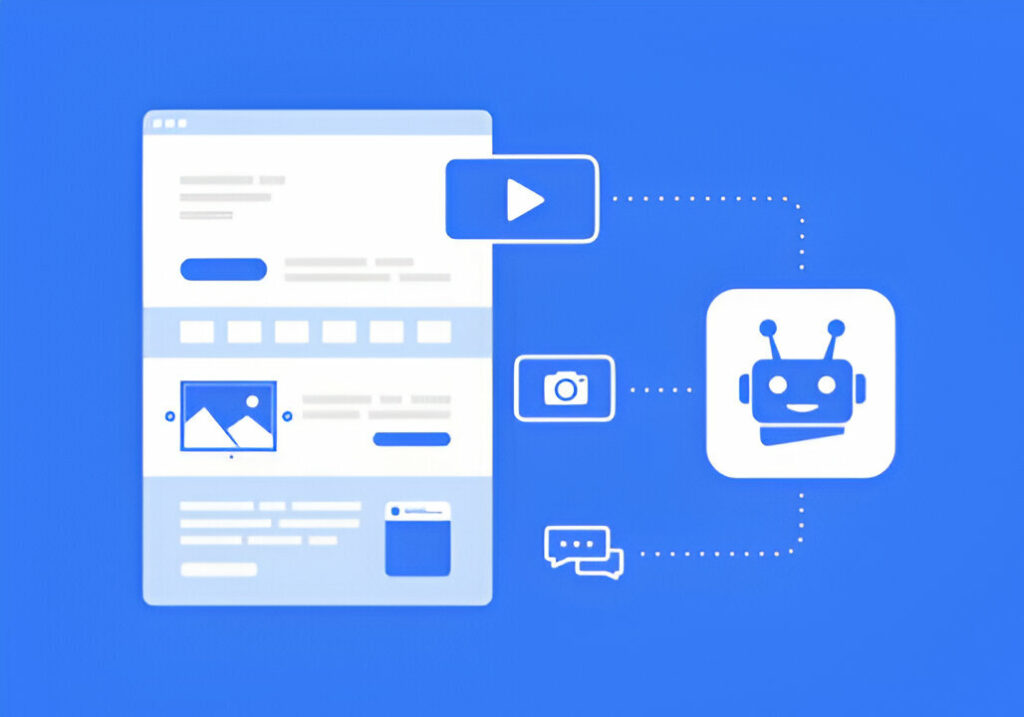
In the vast and evolving landscape of artificial intelligence, there is growing demand for concrete guidance on leveraging the potential of AI websites. From individual users seeking personal development opportunities to companies aiming to turbocharge operations, everyone stands to benefit from the wide-ranging capabilities of the AI site. This section outlines the best practices for maximizing the use of AI websites for personal use, strategic integration of AI services for businesses, and how to ensure data privacy on these platforms.
AI websites offer powerful tools and resources for personal development and learning. However, to unlock their full potential, users must stay updated with evolving functionalities, employ multiple features, and understand how to interpret the results generated by artificial intelligence. Below are a few best practices.
For companies, AI websites offer innovative tools and services that can streamline operations and improve customer service. However, integrating these tools requires a strategic approach. Here are some tips.
While AI websites deliver numerous benefits, they also raise concerns about data privacy and user experience management. Adhering to the following best practices can help mitigate these concerns.
| Best Practice | Description |
|---|---|
| Respect User Privacy | Use AI-derived insights responsibly, without infringing upon the user’s privacy. |
| Data Protection | Implement robust data protection measures to prevent data leaks and unauthorized access. |
| User Experience Management | Monitor user feedback to understand their experience and make necessary improvements. |
Whether for personal development or company growth, AI websites deliver an array of powerful resources. Knowing how to navigate, use, and protect your data on this platform is the first step to unlocking the full potential of artificial intelligence.
As artificial intelligence websites become increasingly integrated into our daily lives, so too do the associated cybersecurity concerns. These AI websites, while transforming the way we communicate, learn, and do business, also present unique vulnerabilities that must be properly managed and addressed. It is clear that robust security protocols in AI website infrastructure are not an option but a necessity.
A key aspect of securing an AI website is ensuring robust data protection protocols. As AI websites often handle vast amounts of sensitive data, implementing strong data protection measures is crucial. These can range from traditional methods such as encryption and access controls to more AI-specific measures like bias detection and secure user modelling.
Ethical AI deployment is another aspect of AI website security that should not be overlooked. As AI systems become increasingly intelligent and autonomous, ensuring they operate in an ethical, transparent manner is paramount. Guidelines and standards for ethical AI, such as the European Union’s Ethics Guidelines for Trustworthy AI, can serve as a roadmap for achieving this.
The field of AI website security is an evolving landscape, with ongoing developments constantly shaping industry standards and best practices. Let’s explore the insights from cybersecurity experts and organizations at the forefront of these developments:
| Cybersecurity Expert/Organization | Insight |
|---|---|
| Robert M. Lee, CEO of Dragos | Emphasizes the need for an integrated approach to AI website security that encompasses both technical and non-technical aspects. |
| National Institute of Standards and Technology (NIST) | Recommends incorporating privacy by design principles and performing privacy impact assessments in AI systems. |
| Prof. Dawn Song, UC Berkeley | Advocates for the use of AI to boost cybersecurity efforts, turning the usual narrative of AI as a security risk on its head. |
In sum, ensuring the security of artificial intelligence websites involves addressing unique vulnerabilities, implementing robust data protection protocols and ethical AI deployment, and staying informed about ongoing developments in the field. While the task presents challenges, it is an essential part of maintaining the trust, privacy, and safety of AI website users.
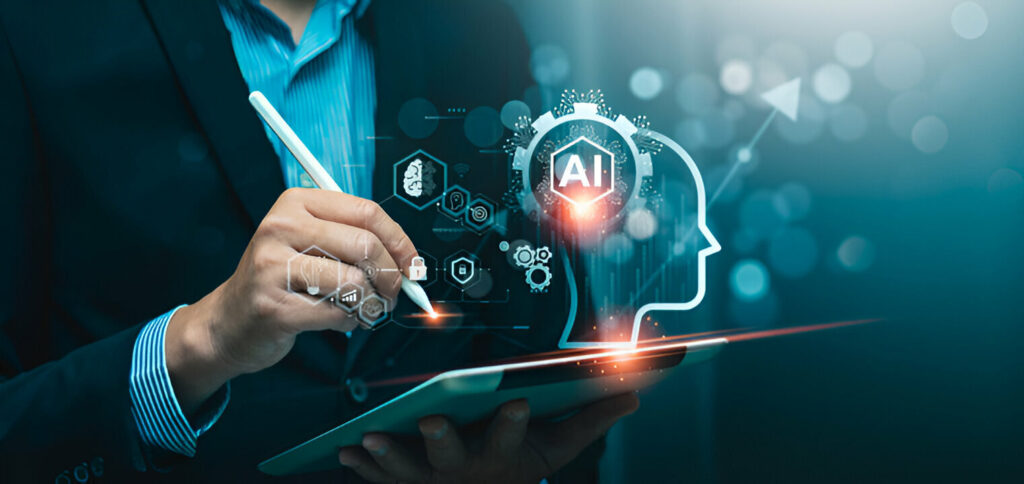
In today’s digital age, artificial intelligence (AI) is significantly transforming the user experience on web platforms. AI is often leveraged to personalize web experiences, adjusting the interface and content in real-time according to users’ behaviors, preferences, and needs. Let’s delve into how AI accomplishes this feat, with a particular focus on customization and dynamic content.
One of the primary uses of AI in web lies in its ability to enhance customization. An artificial intelligence web site is equipped with sophisticated algorithms that analyze user data, track their behaviors, and adapt the site content in real-time. This level of personalization ranges from curated recommendations to tailored interfaces, including individually adapted menu layouts and personalized greeting messages. As a result, users feel valued and understood, and are therefore more likely to stay on the site longer and return in the future.
Artificial intelligence further amplifies user engagement by facilitating dynamic content. AI enables free AI websites to continually adapt the content displayed based on users’ past engagements and other collected data points. Personalization algorithms are at the heart of this process, elegantly sifting through vast volumes of data to deliver content that resonates with every individual user. This can include anything from recommending a blog post on a topic the user has previously explored, to predicting and displaying products a user might be interested in purchasing.
However, while AI-powered personalization undoubtedly enriches the user experience, it also raises questions about user privacy. Hence, the next step in the development of AI web technology will likely involve finding a balance between personalization and privacy, thus ensuring users feel both catered to and secure.
Artificial intelligence (AI) continues to transform the world of web platforms, shaping the way we interact with digital services on a remarkable scale. Notably, AI-driven improvements to User Interfaces (UI) have established the best AI websites, reconfiguring our expectations of what online experiences should be like.
One prominent example is the evolution of chatbots. Formerly known for rigid dialogue and limited capabilities, AI has been instrumental in breeding a new generation of smart chatbots. These advanced bots can comprehend complex queries, track user behavior, and manage intelligent, personalized interactions on an AI website, reinventing the typical user experience.
Additionally, the rise of voice assistants represents yet another UI breakthrough linked to AI. By leveraging AI-powered speech recognition and Natural Language Processing (NLP), these tools have carved out an attractive, ease-promoting feature on many artificial intelligence web sites.
Equally impressive are real-time translation features, which depend on AI capabilities to decode languages instantaneously. This technological advancement has enabled seamless interaction on AI web platforms with global reach, undermining language barriers and fostering universal accessibility.
Moving on to the impact of AI on UI design processes, it is clear how it has contributed to a more intuitive and seamless user experience. AI-based predictive design capabilities allow for the dynamic adaptation of a page or application in response to an individual’s actual usage patterns, improving the usability and personal relevance of a site or tool.
Many sites have achieved success by implementing AI-driven UI enhancements. Take the example of Spotify, an AI website world-renowned for its personalized playlist recommendations. The music streaming service uses AI to analyze users’ listening behaviors, which powers its custom playlist generator. A highly-interactive interface then delivers these curated playlists to users, producing an experience that is both unique and engaging.
The weather forecasting site Meteo has revolutionized its viewer interactions via the use of an AI-supported chatbot. Capable of interpreting precise user-prompted inquiries on weather forecasts, it also offers helpful suggestions for weather-related activities, raising the bar for chatbot-based user engagement.
The impact of AI on the face of User Interface innovation presents a compelling case for the potential of artificial intelligence web sites. The possibilities are vast, and as AI continues to grow in power and sophistication, it promises an even more interactive future for the realm of UI design.
As we continue to peer into the future of the artificial intelligence site landscape, we find a mix of intriguing predictions, trends, and potential developments that could shape our online experiences for the better. With each passing year, AI in web becomes increasingly entrenched in our daily digital interactions, paving the way for a future filled with unimaginable possibilities. In this section, we contemplate and discuss these emerging trends and what the next decade could hold for AI web technology.
Firstly, let’s delve into some expert predictions for imminent developments on the AI horizon. Intelligent virtual assistants are growing more sophisticated, with the potential to fully simulate human communication. Another significant trend is the continuous improvement in machine learning algorithms, which are enabling AI to provide more personalized and intuitive user experiences. We are also seeing advancements in AI-powered cybersecurity, as increasingly powerful models detect threats and respond to them far quicker than human-led teams.
Looking further ahead, the next decade promises some truly transformative developments in AI web technology. Huge strides are expected in the areas of natural language processing, neural networks, and quantum computing. Such advancements could usher in a new era, where AI’s ability to understand human language, learn from experiences, solve complex problems, and make decisions surpasses our wildest expectations.
Along with these pioneering advancements, we anticipate a surge in free AI websites, aimed at empowering individuals and businesses to harness the power of AI without hefty investments. As a result, artificial intelligence could become more accessible to everyone, fostering innovation across sectors and demographics.
However, along with the excitement around these advancements, we must also consider the societal and ethical implications. As AI systems become more autonomous, questions arise about accountability, privacy, and ethical decision-making. Balancing the benefits of AI with the potential risks will undoubtedly be a central focus in the years ahead.
Preparing for and embracing these changes will provide us the opportunity to shape a future where AI in web technology creates a safer, more efficient, and more accessible digital world for us all.
Artificial intelligence is a dynamic and rapidly evolving field. If you are passionate about AI and are seeking to expand your knowledge, it’s critical to tap into relevant resources and to enrich your understanding by engaging with like-minded individuals and experts in the field. In this section, we provide comprehensive resources and platforms to help you stay updated and continuously keep refining your AI knowledge and skills.
Engaging with AI thought leaders and communities is a powerful way to stay abreast of the latest trends, insights, and advancements on the artificial intelligence site landscape. Several AI websites and forums host an array of discussions, articles, and talks by professionals and thought leaders in the field. It can be highly enriching to participate and take part in these discussions and even ask the experts your queries on different AI related topics. Not only does this add a real-world perspective to your understanding of AI but also provides networking opportunities with the AI community.
Education is a perennial part of learning AI. For anyone wanting to delve deeper into AI, there are numerous AI websites offering flexible learning programs and courses. These platforms provide learning material in the form of webinars, online courses, tutorials, and much more, some even free of charge. Participating in such programs can help you check cross-reference your understanding, clarify doubts and even gain globally recognized certifications.
Let’s take a look at some popular AI and Machine Learning courses that can help enhance your skills.
| Course | Description | Platform |
|---|---|---|
| Intro to Artificial Intelligence | This course introduces AI concepts such as robotics, vision, physical simulation, and machine learning. | Udacity |
| Machine Learning | This course provides a broad introduction to machine learning, datamining, and statistical pattern recognition. | Coursera |
| Deep Learning Specialization | In this course, students learn about neural networks, deep learning, structuring ML projects, convolutional neural networks and sequence models. | Coursera |
It is essential that as you continue learning, you immerse yourself in practical projects. These projects not only apply theoretical knowledge but can often generate innovative ideas and solutions.
At the end of the day, AI is about continuous learning. It’s about staying curious, asking questions, and always striving for a deeper understanding.
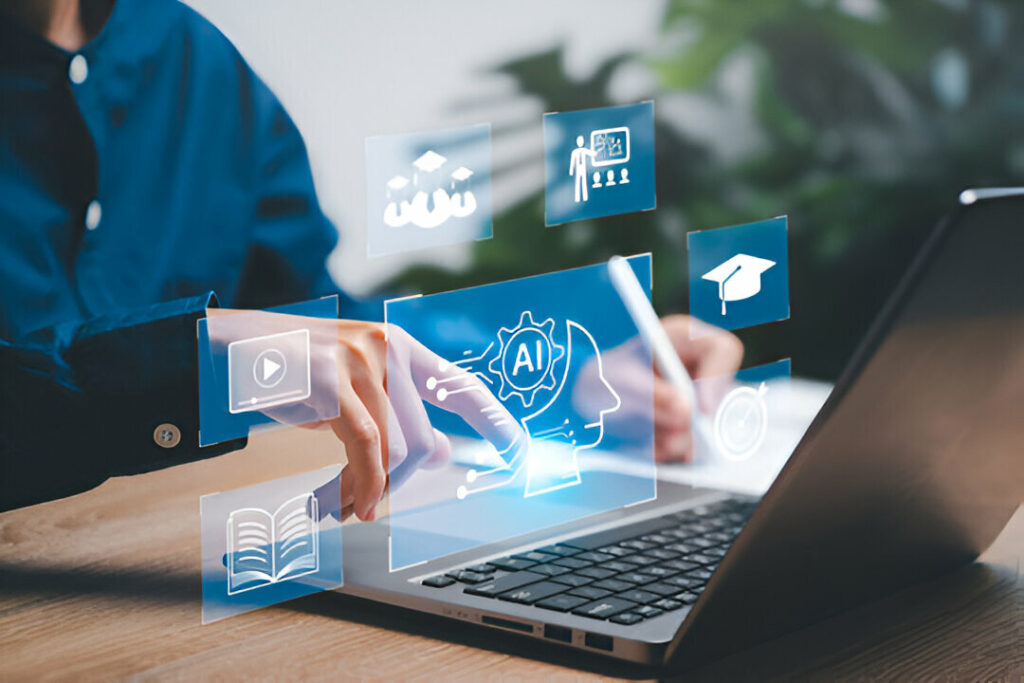
Through the course of this article, we have extensively explored the fascinating realm of artificial intelligence and its embodiment in dynamic web spaces. The omnipresence of AI in our digital lives, whether conspicuous or hidden, represents an evolution in how we interact with web technology and consume the varied forms of content it generates.
We provided a broad overview of the best AI websites, delved into the depths of their evolution, and investigated their impact across industries. Crucially, we addressed key aspects from understanding their essential features and appreciating the plethora of free AI resources to evaluating commercial AI services. Furthermore, we highlighted the intersection of AI with web development and design, best practices for their utilization, and cybersecurity considerations.
The AI web landscape is an ever-changing entity that warrants continued exploration. As AI evolves, it not only affects user interaction but also molds the architecture and functionality of websites. Each development in the AI space brings with it a renewed sense of intrigue, a challenge to be mastered, or a novelty to be appreciated. Hence, readers are encouraged to stay tuned to developments in this space, constantly learning and adapting to reap tangible benefits.
As we conclude this journey into the world of artificial intelligence websites, it’s important to pause and truly appreciate the transformative potential of AI in shaping the digital landscape. Being a relatively nascent technology, AI’s full potential remains to be untapped. It’s this inevitable future that leaves us with anticipation and a keen interest in what lies beyond the horizon. While the specifics are unknown, one thing is certain – AI is here to stay, and it will continue to redefine the contours of the web world in ways unimaginable today.
Popular AI websites include IBM Watson, Google AI, OpenAI, and Microsoft AI. These platforms offer advanced AI-driven tools, resources, and solutions that are shaping the AI landscape.
AI has gone from simple chatbots to complex AI assistants, machine learning algorithms, and neural networks. This evolution has drastically enhanced user experiences on AI websites.
AI-driven websites have vastly improved operations, efficiency, and personalized experiences in sectors like healthcare, finance, and retail. They also play a crucial role in data analysis and decision-making processes across various industries.
An engaging AI website features user-friendly interfaces, informative content, real-time AI functionalities, and a seamless integration of AI components. These elements improve user interaction and the overall user experience.
Free AI websites offer a range of tools and services, including various AI tools and resources suitable for different tasks. Despite being free, they’re quite effective for multiple applications.
Commercial AI websites often offer more advanced features, professional support, and scalable solutions compared to free platforms. They also cater to specific industry needs, providing tailored AI solutions.
AI automates coding tasks, improves SEO, facilitates content management systems, optimizes user experience, predictive design, and adaptive interfaces. It contributes significantly to responsive design and future web development practices.
For personal use, AI websites can be optimized for learning and efficiency. Companies, on the other hand, can strategically integrate AI web services into their operations. It’s essential to adhere to best practices for user data privacy and managing user experiences on AI-powered platforms.
Cybersecurity is paramount for AI websites due to unique vulnerabilities. Best practices include data protection protocols, encryption, ethical AI deployment, and adherence to industry standards for AI website security.
AI enables customization on the web, provides dynamic content via personalization algorithms, enhances user engagement, and balances personalized experiences with user privacy concerns.
AI has powered several UI innovations, such as smart chatbots, voice assistants, and real-time translation features. It has also resulted in more intuitive and seamless user experiences on websites.
Industry experts predict a rapid advancement in AI web technology over the next decade, impacting online experiences while raising societal and ethical concerns.
There are numerous online courses, webinars, and active online communities where individuals can connect with AI thought leaders, share ideas, and stay updated on the latest advancements.